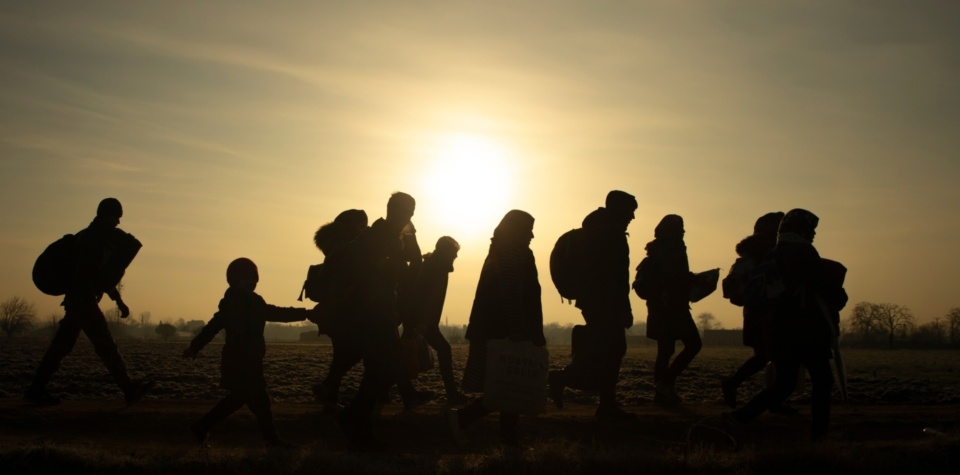
One Nation’s chances as a dominant conservative party are piñata-like
Posted on 11 Feb 2026
Opinions polls insist Pauline Hanson's fortunes are on the rise, but it is likely that enthusiasm…
Posted on 06 Feb 2024
By Mark Gaetani

The revamped stage three tax cuts should be just the first step in the federal government’s efforts to prioritise people’s wellbeing in its economic planning, says the national president of the St Vincent de Paul Society, Mark Gaetani.
At the time the prime minister began his address to the National Press Club on 25 January, the St Vincent de Paul Society in Australia had long been advocating for a scrapping of the stage three tax cuts legislated five years ago, or at least a significant review of them.
We believed they were unfair and, being skewed upwards to high income earners, would foster inequity.
Following Mr Albanese’s announcement, we noted that the proposed adjustments – yet to receive parliamentary endorsement – would primarily benefit low- and middle-income earners.
Since then, it has been encouraging to see the Australia Institute’s poll showing that two-thirds of people favour the changes.
The main beneficiaries, unlike the "winners" in the schedule legislated in different economic times, are average Australians struggling with the high cost of food, electricity, rents and mortgages, and other essentials.
The doubling (broadly speaking) of their tax benefit will contribute to a fairer Australia, which since the leadup to the 2022 election has been the focus of the Society’s advocacy position.
The pillars of our policy address poverty and inequity, housing and homelessness, people seeking asylum, secure work, First Nations, and welfare and tax reform.
In varying degrees, the reformed stage three income tax schedule will provide much-needed help to working households.

They are not expected to have an inflationary impact, which, along with the latest inflation figure of 4.1 per cent, is a relief, as so many essentials have become unaffordable, such as rents, energy bills, fuel, healthy food, and medical costs.
However, the benefits will not be felt until 1 July, still months away, and the Society continues to hear from many working people who are struggling to make ends meet and who have never contacted a charity for assistance.
This is in addition to the significant number of Australians who are out of work, derive little benefit from the revised income tax schedule and rely upon inadequate welfare payments that keep them struggling day to day.
Even the government’s own Economic Inclusion Advisory Committee supports increasing working age payments such as JobSeeker and Commonwealth Rent Assistance. We strongly agree this is a key social priority.
Requests for support are rising across the country and our members are seeing first-hand the continuing pressure placed on family budgets by rising costs.
For example, in NSW in 2022–23, the Society responded to an increase of 17 per cent in demand. Among those supported, 10,600 identified as Aboriginal or Torres Strait Islander people, and 10,500 lived with disabilities.
Requests for help came primarily from individuals aged 30 to 70, with around 60 per cent being female. Most seeking aid were renters, and 90 per cent relied on income support payments as their main income source.
"There may be no magic bullet to achieving a fairer Australia, but various workable strategies have been formulated."
In recent months, the calls we have received for emergency assistance – not necessarily related to natural disasters – have risen by up to 40 per cent. Such demands are making it almost impossible for charities to respond.
While there have been some welcome funding increases, and it was heartening to hear the prime minister say that “no one will be left behind”, at present large numbers of people are experiencing just that.
We detailed our concerns in a recent pre-Budget submission to the government that listed the key issues we believe to be driving Australia’s persistent levels of poverty and disadvantage.
These include:
Energy rebates should be better targeted to those who need them most, such as renters and those on low to middle incomes. Landlords should be encouraged or even mandated to increase energy efficiency.
Based on our direct experience with people unable to meet the rising costs of living, all these areas require urgent attention.
Another is the way housing is often viewed as an investment opportunity, a get-richer scheme, rather than a secure place to live.
In a recent report PerCapita
noted that investor tax concessions had grown from $1.5 billion in 2000 to an estimated $18 billion in 2024, saying these now effectively operate as a shadow housing policy that has a significant market impact.

In 2023-2024, federal investor tax breaks will be worth more than ten times the amount spent by the Federal Government on social housing and homelessness services through the National Housing and Homelessness Agreement.
These concessions impact on many people, especially younger folk who are being shut out of the home buyer market and increasing numbers of people (of all ages) struggling to find affordable places to rent. Clearly, something needs to be done about negative gearing and capital gains breaks.
Indeed, a thorough tax review is long overdue, with a brief to improve equity and address bracket creep. The point is that those who need assistance the most should be prioritised.
There may be no magic bullet to achieving a fairer Australia, but various workable strategies have been formulated.
One emerged from the research report the Society commissioned from the Australian National University, A Fairer Tax and Welfare System for Australia, which showed how 834,000 people could be lifted out of poverty by increasing working age payments funded by reforms to taxation and superannuation regimes.
St Vincent de Paul Society joins with other civil society groups in urging the Australian Government to prioritise people’s wellbeing in its economic planning.
To view the Stage 3 tax cuts as only a small part of the reforms that need to be enacted in the lead-up to the Federal Budget in May and embedded in the decisions that will be announced at that time.
Mark Gaetani is National President, St Vincent de Paul Society Australia.

Posted on 11 Feb 2026
Opinions polls insist Pauline Hanson's fortunes are on the rise, but it is likely that enthusiasm…

Posted on 04 Feb 2026
As we move into 2026, I can’t help but think the world is wobbling a little.

Posted on 28 Jan 2026
The 2026 Australia Day Honours list delivered a sobering reality check. After reaching gender…

Posted on 28 Jan 2026
This year’s Adelaide Writers’ Week began with the cancellation of a talk by Palestinian-Australian…

Posted on 16 Dec 2025
As Australia prepares to welcome its one millionth refugee, human rights advocate and former…

Posted on 10 Dec 2025
What a year 2025 has been, particularly at a national level where the Parliament and politics as we…

Posted on 26 Nov 2025
Charities and not-for-profits can be outstanding advocates for their cause, their community, their…

Posted on 12 Nov 2025
Managing a charity or not-for-profit in Australia is often more complex than it may appear. On any…

Posted on 29 Oct 2025
One of the most contentious debates across many areas of human services is the for-profit versus…

Posted on 28 Oct 2025
Workers in the not-for-profit sector lift up communities, care for those in crisis and do work that…

Posted on 08 Oct 2025
The cost of climate change's impact on Australian life is increasingly well documented. The…

Posted on 08 Oct 2025
The Wurundjeri Indigenous people who live in and around Melbourne understand their environment as…